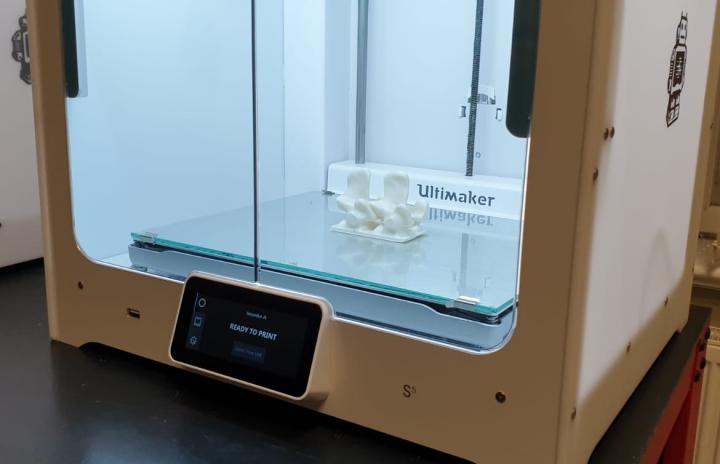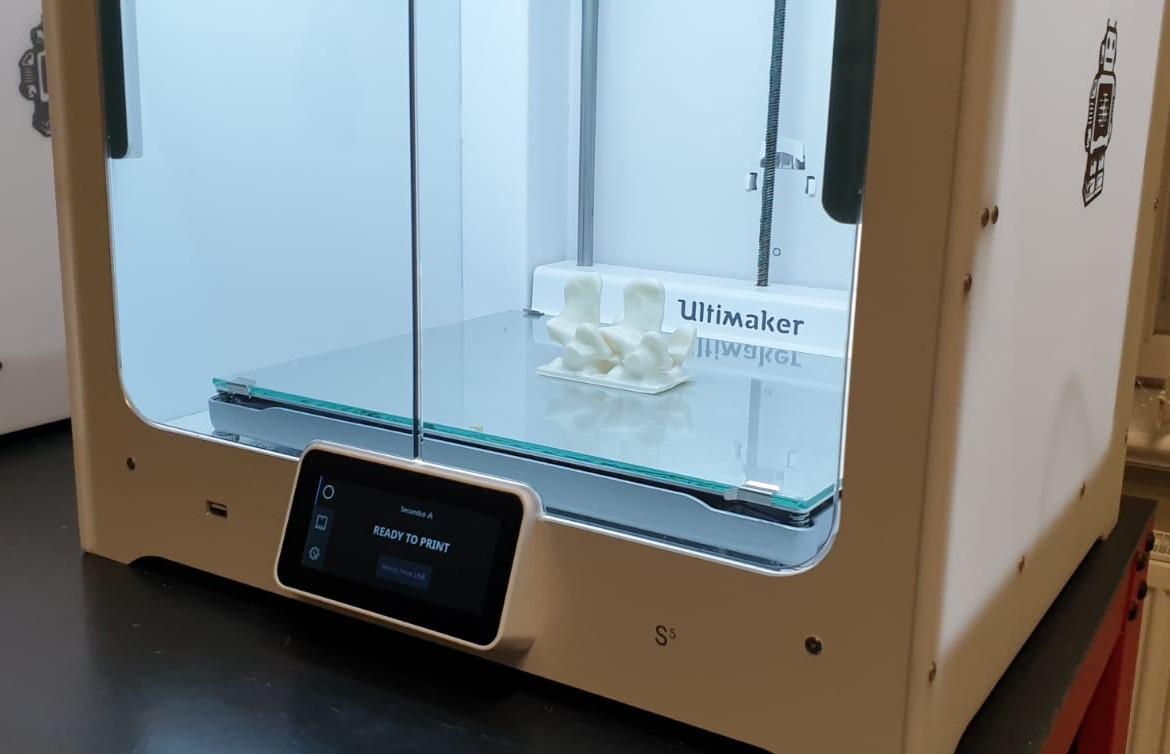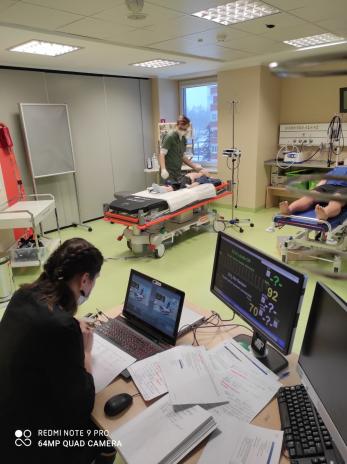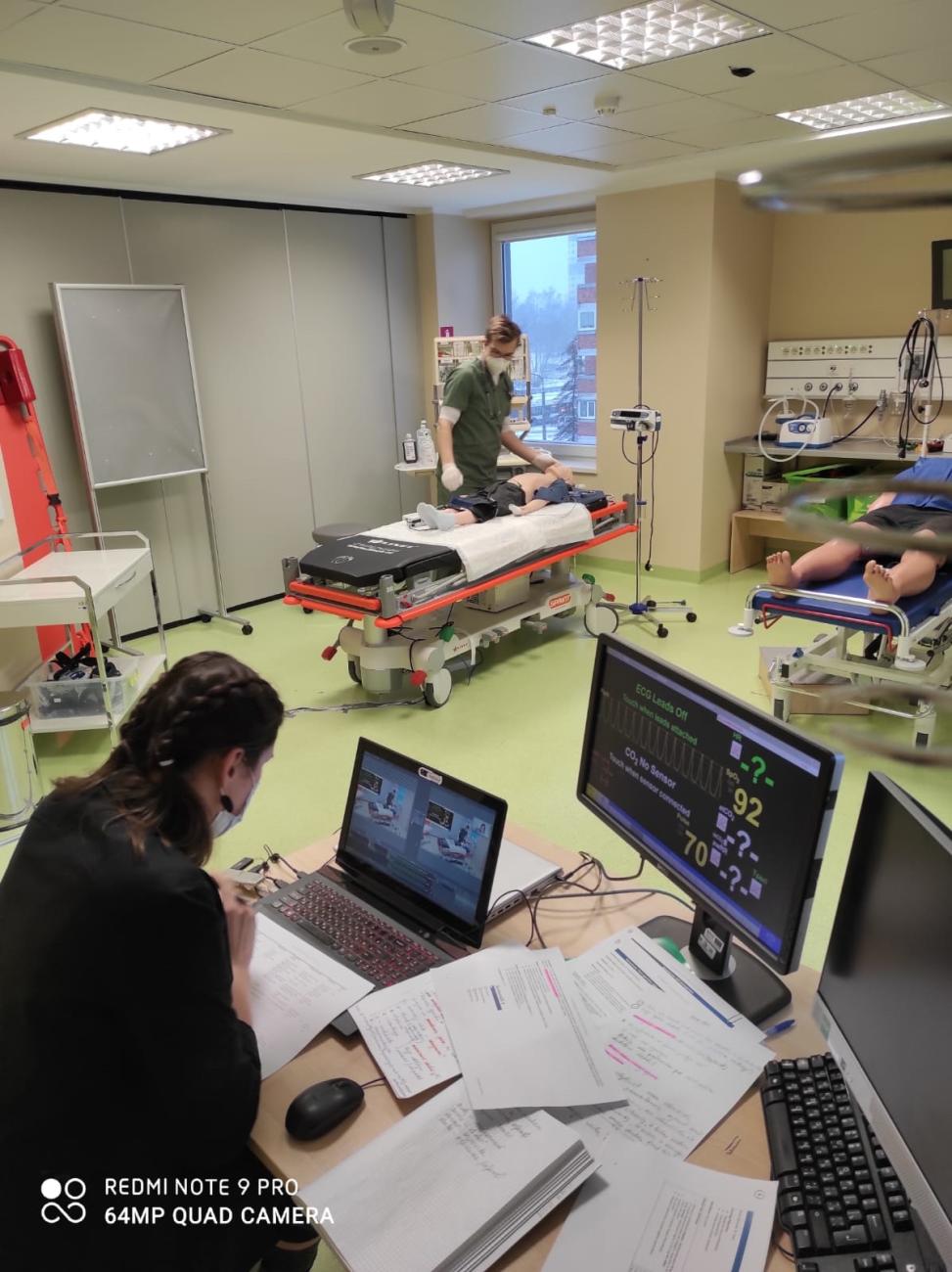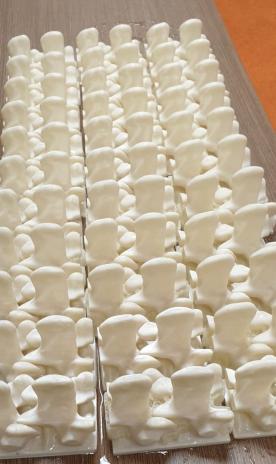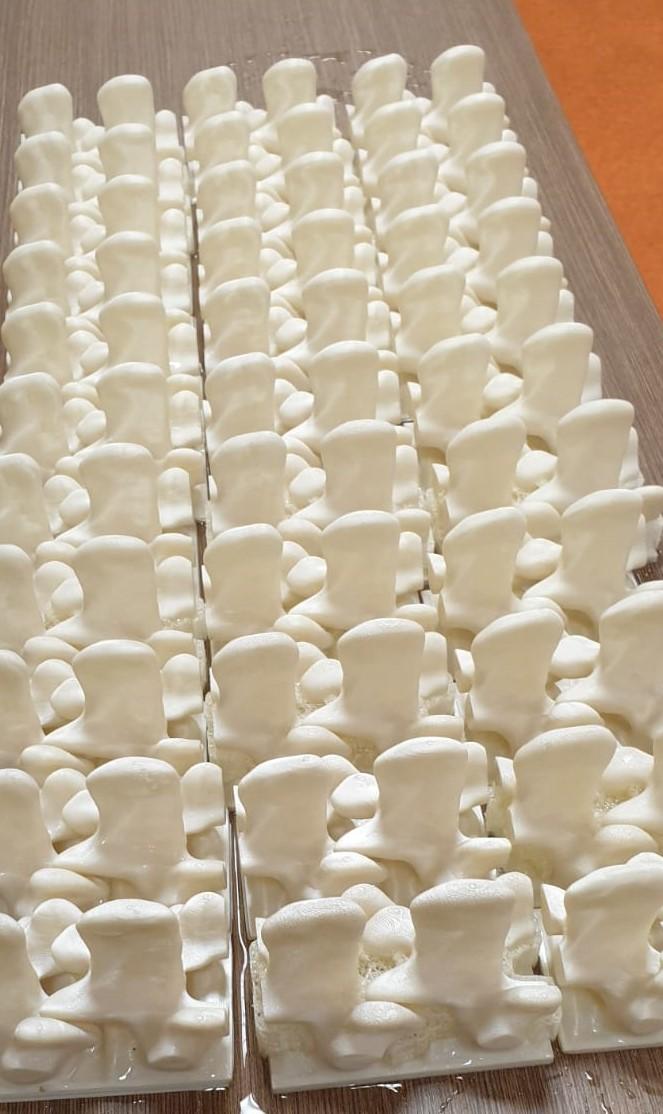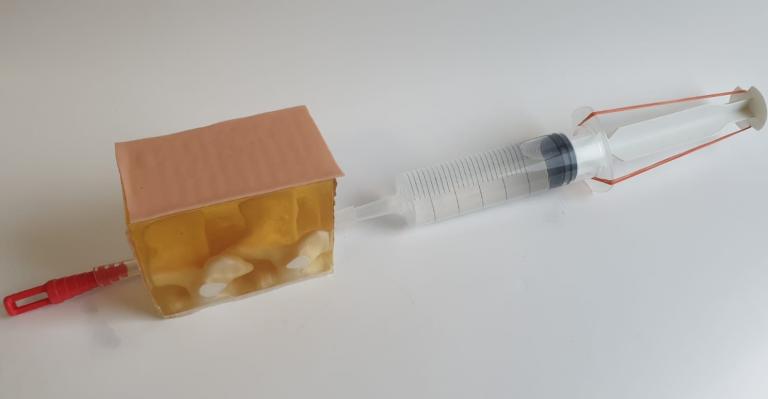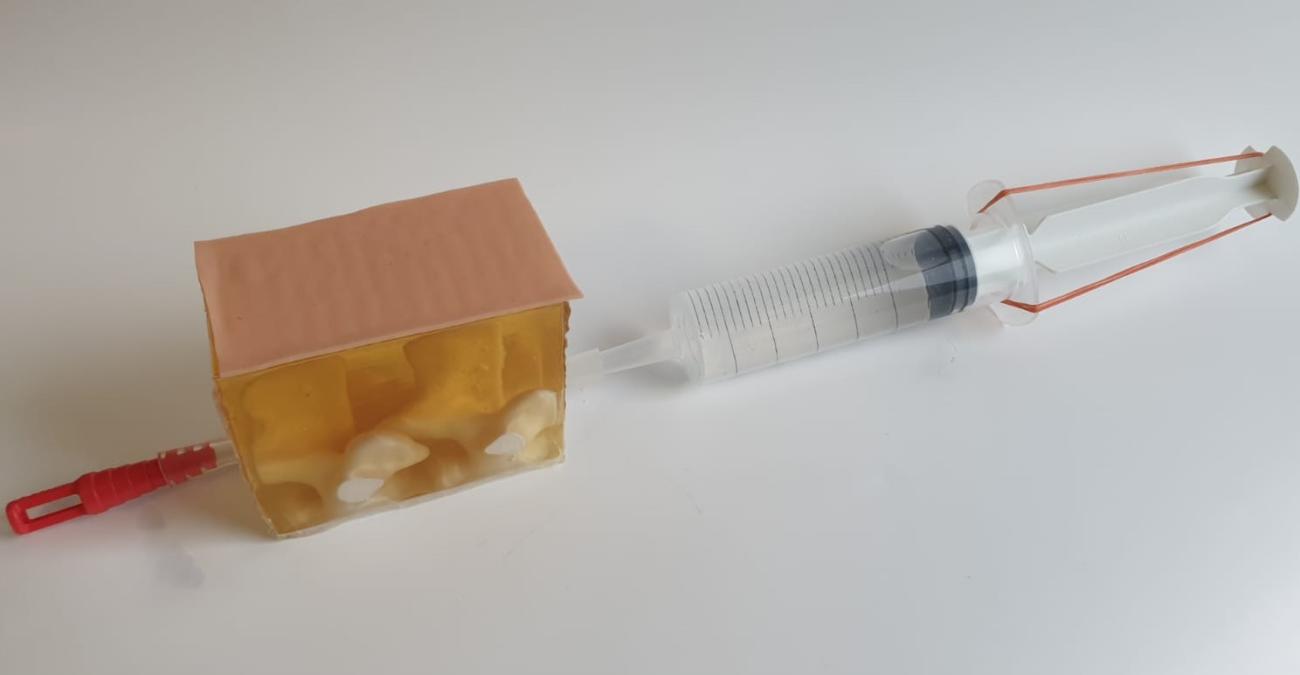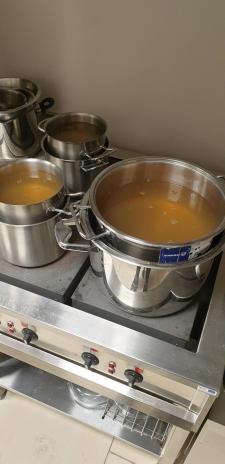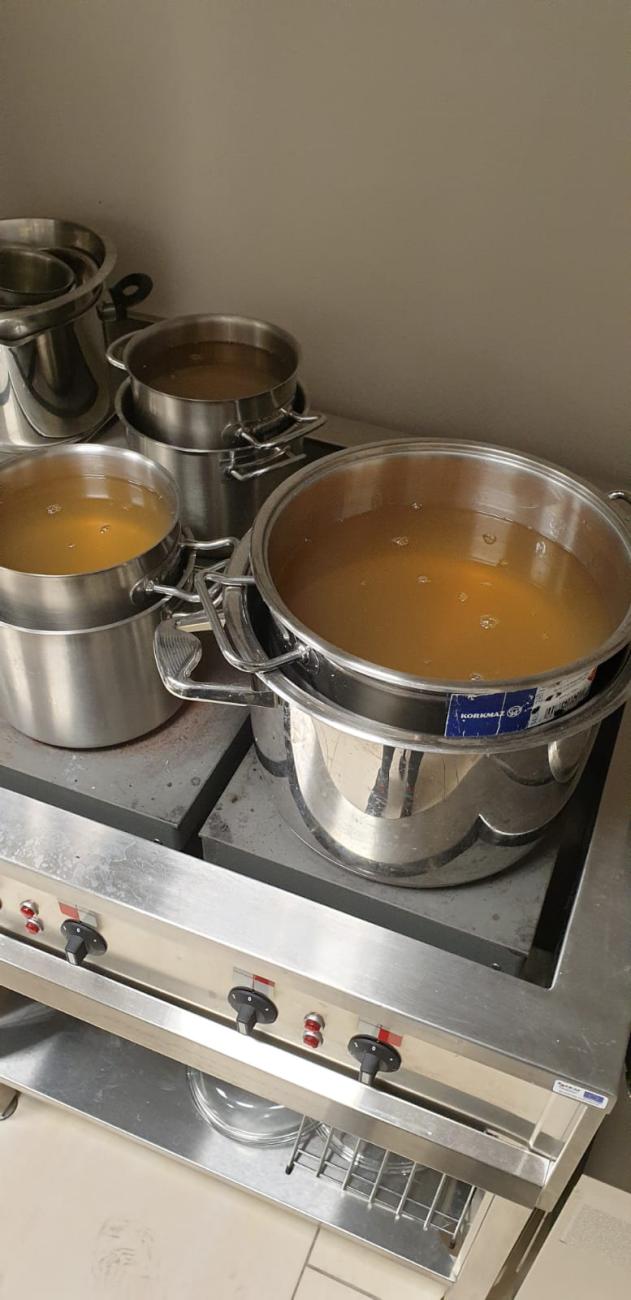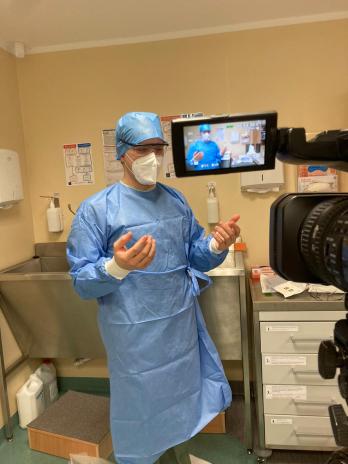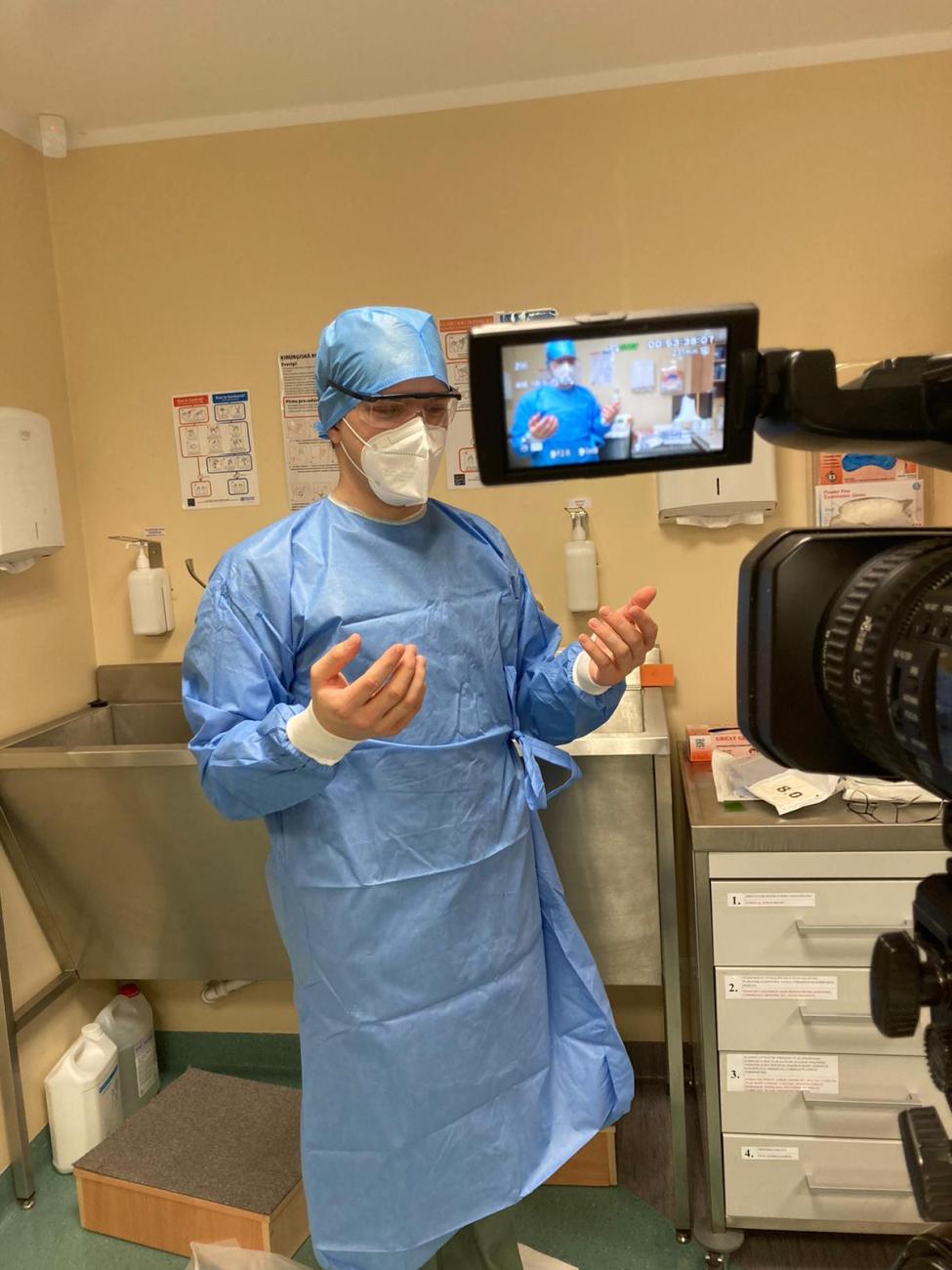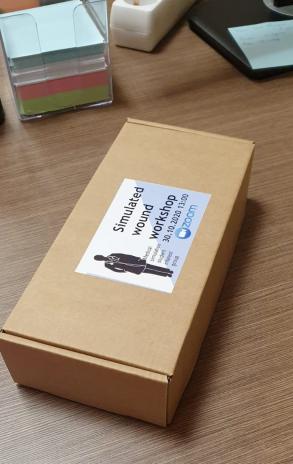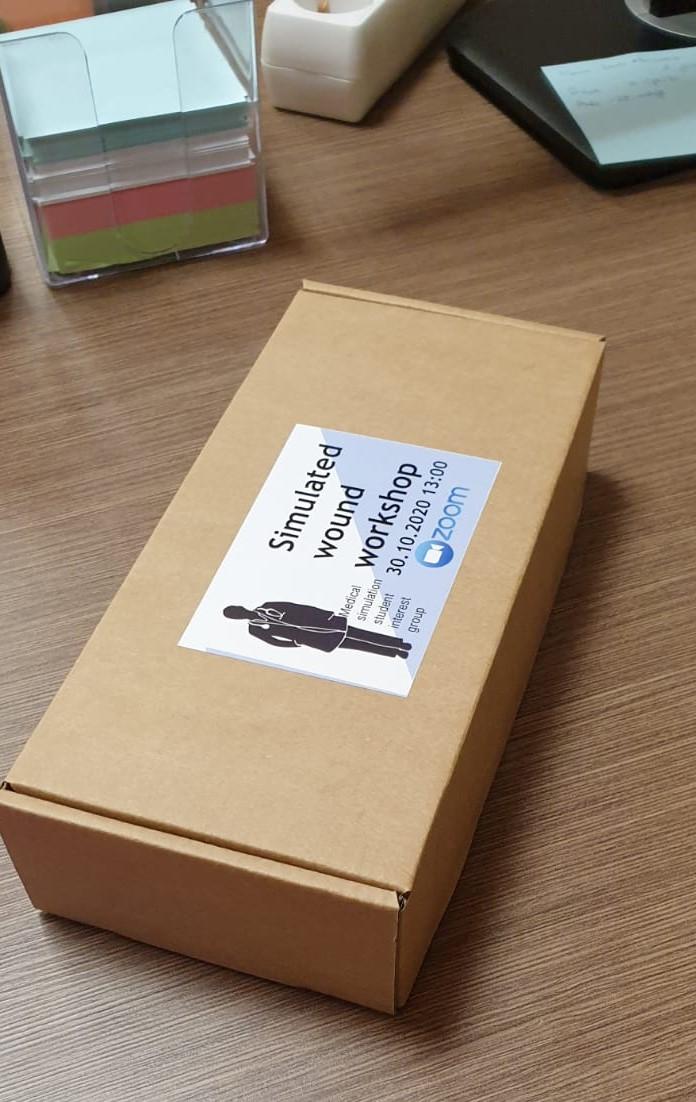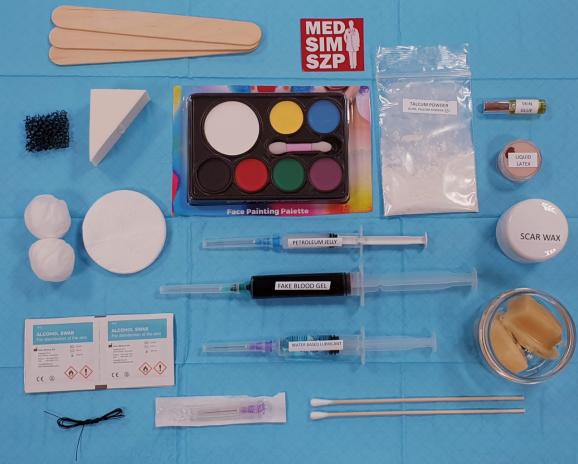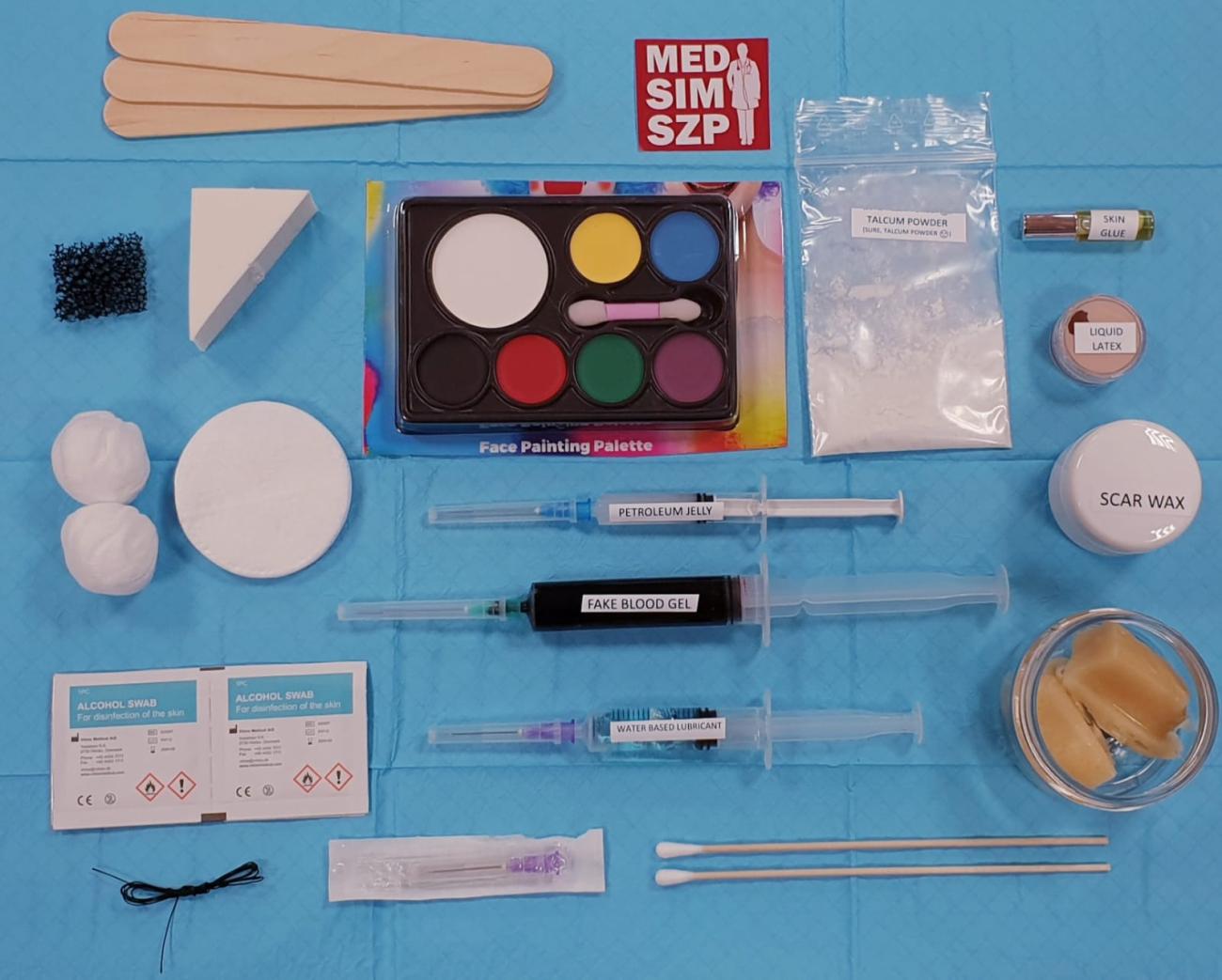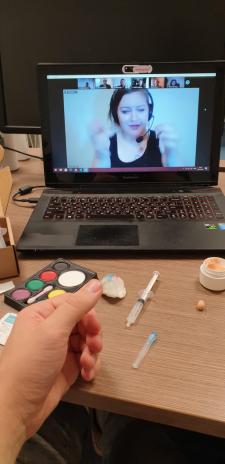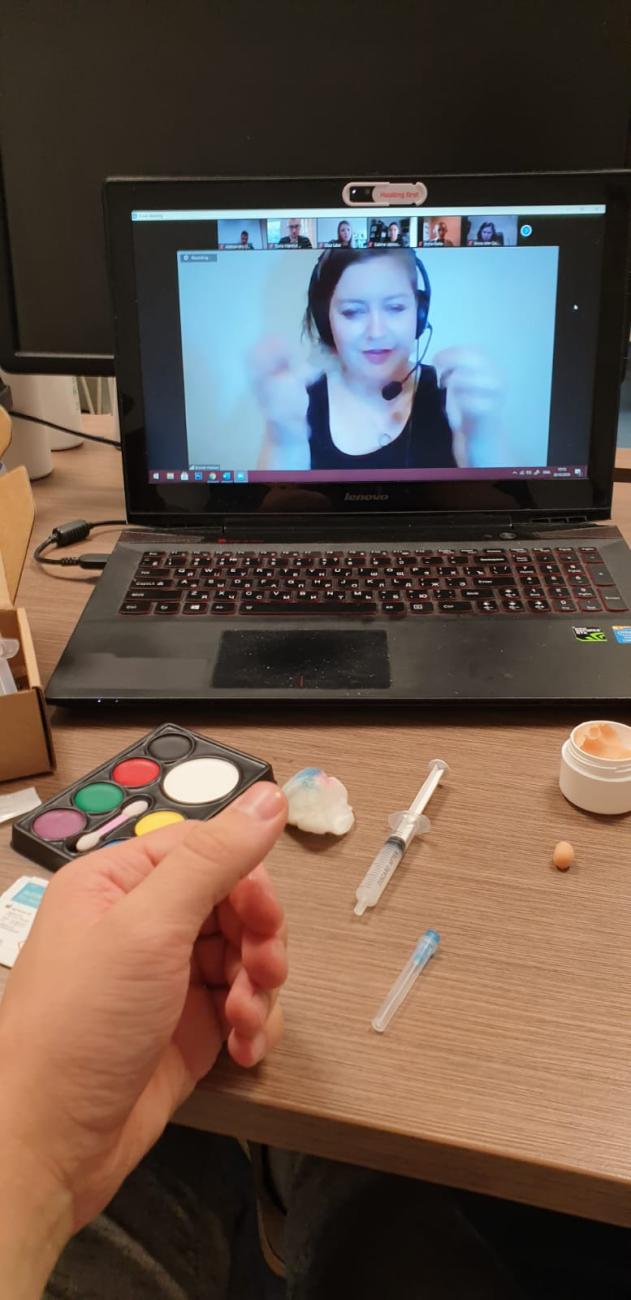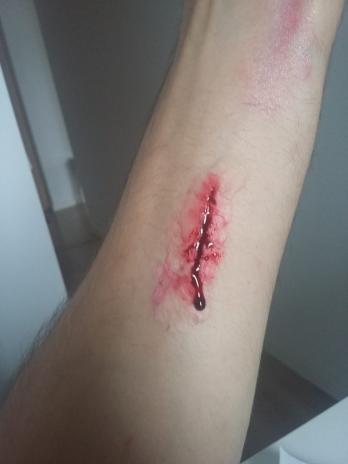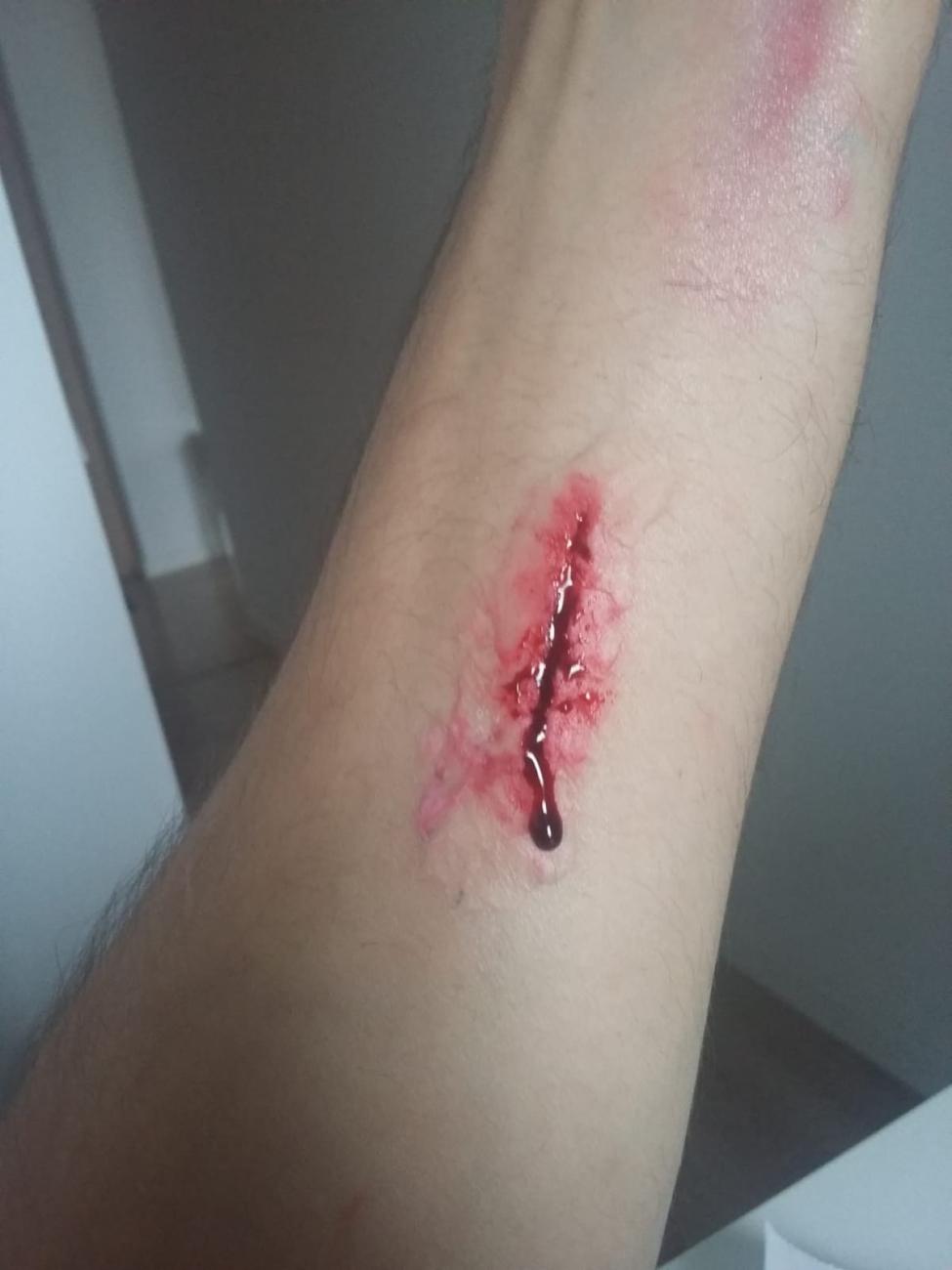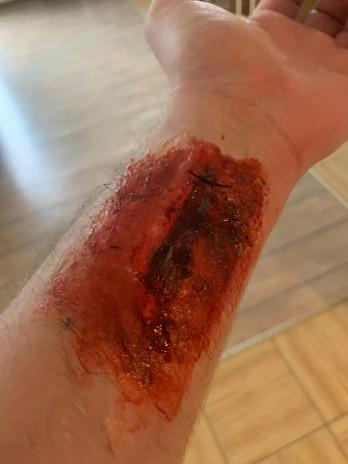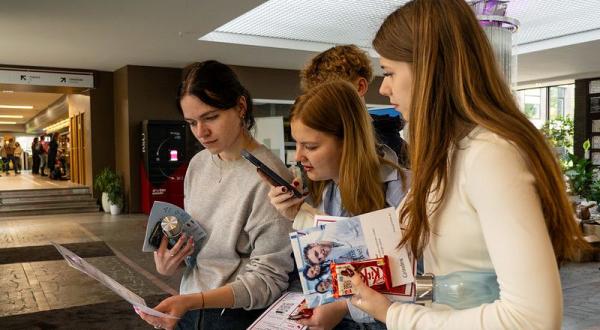Avatars, Artificial Wounds, and 3D-Printed Simulators: How RSU Students Learn Practical Skills at Home
The Rīga Stradiņš University (RSU) Medical Education Technology Centre (METC) provides students with the opportunity to use avatars, artificial wounds, and 3D-printed simulators in the study process to hone their clinical skills while studying remotely.
The biggest challenge for medical students anywhere in the world is training their clinical skills during the pandemic. Prospective doctors at RSU have it easier because the largest health care simulation centre in the Baltic States operates in Riga. During the pandemic, the centre’s team has looked for ways in which to creatively simulate in situ conditions to feel as real as possible.
Students have passed a remote clinical skills exam using their avatar and have honed their practical skills with lumbar puncture equipment that has been printed on a 3D printer and with specially designed surgical suture kits.
‘While full-time studies and exams are not allowed, we are looking for other ways in which to test students’ practical knowledge. I am really pleased with our team’s performance – my colleagues inspire me to look for new solutions every day by creating a safe simulated environment for the students to be able to learn clinical skills,’ says Ieva Šlēziņa, Director of the RSU METC.
One of the innovative methods involves using an avatar during clinical skills exams, where a student, an examiner, and a clinical simulation specialist meet on Zoom. While the student and the lecturer can be at home, or in another convenient location, the clinical simulation specialist, who acts as the student's avatar in the examination, works in a fully equipped clinical simulation study room.
During the examination, the student draws a card with a specific manipulation on it, which the student then has to describe to their avatar in such detail that the avatar can implement it properly, mirroring the student's eyes, hands, and by listening to what they are being told.
‘Of course, it is not possible to test prospective doctor’s ability to perform manipulations physically, but it is possible to test their knowledge and understanding of clinical skills and their ability to explain the manipulation to a third party,’ says simulation instructor Anastasija Gromova. ‘I think that all students did great,’ she adds. RSU used the avatar method in both local and international medical students’ exams.
With a patient on the other side of the screen
Avatars have also been used in other online classes in order to make the learning process more interactive. For example, clinical situations that have been played out remotely include acute coronary syndrome, postoperative nausea and vomiting, asthma flare-up, and subdural haematoma in a child. While students watched on Zoom, the scenarios were played out in a clinical simulation room, and all clinically important decisions made remotely by the students and then executed by their avatar. The students were then able to observe the consequences of their instructions on camera.
‘Although we connected remotely, all situations took place in a clinical environment with all the necessary equipment and possibilities to monitor the patient in real time. Such activities allow prospective doctors to improve their skills in patient assessment, develop clinical thinking, the right approach to providing care, and improve their leadership skills and teamwork. The students really liked it, especially the fact that they had to think quickly and be able to practically improve their knowledge with virtual patients and real auscultation or natural body sounds,’ says Emīlija Zeltiņa, Head of the Family Medicine scientific group, praising the cooperation with the METC simulation instructors.
Surgical suturing at home
In order to allow prospective doctors to work practically when face-to-face classes are prohibited, RSU clinical simulation specialists, laboratory technicians, and medical engineers have developed remote skills acquisition kits that can be integrated into study courses together with the university teaching staff. For example, kits for almost 30 different skills are available for studying from home, including injection machines, equipment for hand hygiene and sterile skills as well as digestive and urinary tract manipulators. In addition to the basic study skills, kits with simulated wounds have also been made. These lessons were led from Australia by Bronte Hobson, a specialist in clinical simulations and a special effects artist.
One of the most popular kits allows you to learn surgical suturing. As the name suggests, it would be pointless to run such a lesson like this in theory only, so the METC has created special kits that include sterile gloves, surgical instruments, sutures, and a special surgical simulator that students can work on at home, while a lecturer comments on their performance on Zoom.
Printing patients' body parts
For students who are interested in neurology and neurosurgery, one of the basic skills is to perform a lumbar puncture. This is a manipulation which uses a special needle that is inserted into the spinal canal to obtain the patient’s spinal fluid. Usually, young people practice the skills to perform this manipulation in person on an METC simulator. As this is currently not possible, clinical simulation laboratory technicians, specialists, and engineers in cooperation with the RSU Institute of Anatomy and Anthropology have created the most successful solution for a model of two lumbar vertebrae after developing more than 15 prototypes. It was printed on a 3D printer and supplemented with a special structure – gelatin gel filled into a tube, which mimics the patient’s tissues.
This simulator is equipped with a stopper that provides sufficient pressure for the spinal fluid inside and comes with a syringe. Students who received this kit could then train both their theoretical and practical knowledge for performing a lumbar puncture under the guidance of neurologist Jānis Vētra. Marija Luīze Kalniņa, the leader of the Neurology and Neurosurgery scientific group for students, is very satisfied with these innovative solutions, noting that the equipment that the RSU METC has developed is a great way in which to hone students’ clinical skills remotely.
